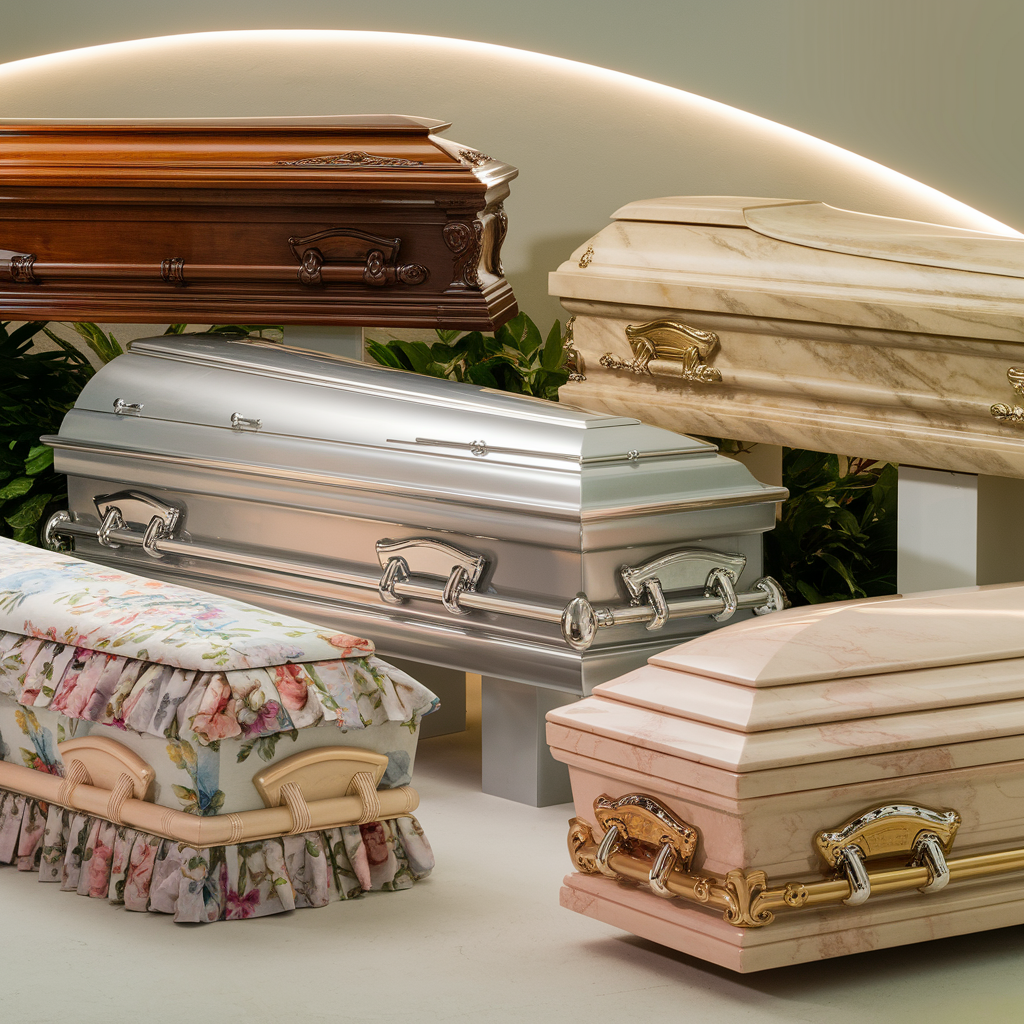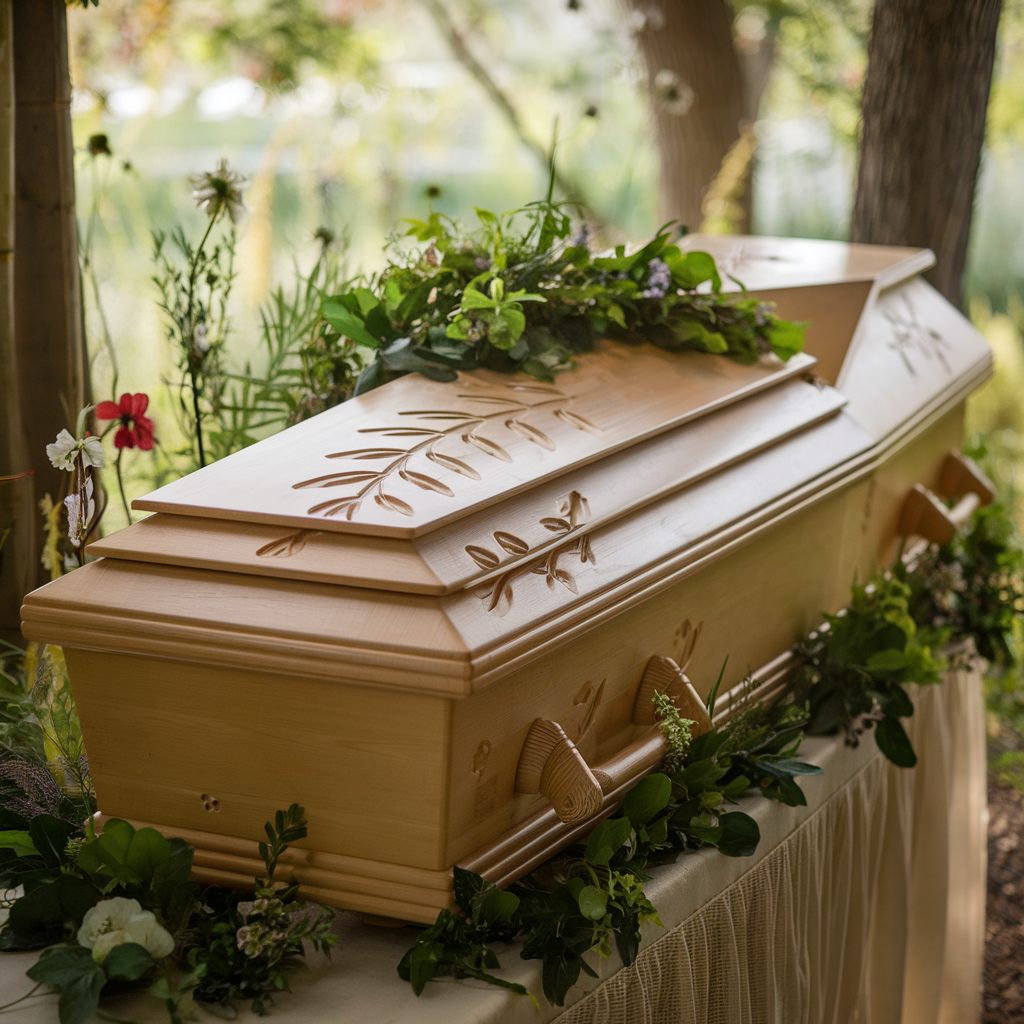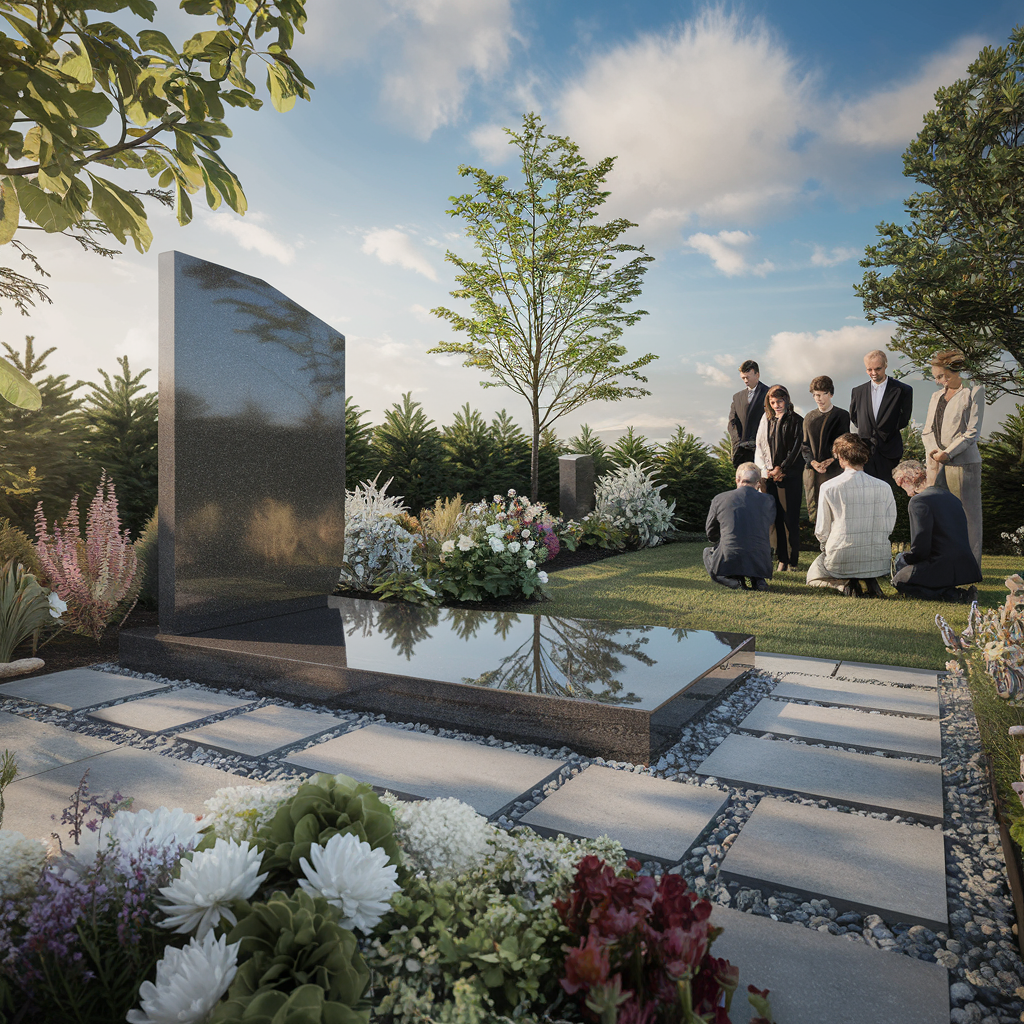Ever wondered what happens to a casket after it's buried? You're not alone. While it might seem like a strange thing to think about how caskets decompose, it's a question that pops up more often than you'd expect. Maybe you're planning ahead, environmentally conscious, or just curious about what happens beneath the surface.
Let's talk about caskets and time. Not the fancy marketing promises of "eternal" preservation, but the real deal. Some caskets break down in just a few years, while others stick around for decades. It's not just about the material they're made from – nature has its own plans.
We'll explore how different caskets face their final test underground. We'll look at what makes them last or break down, from the soil they're buried in to the weather above. No complicated jargon, just straight facts about what really happens when we say our final goodbyes.
Think of it as your straightforward guide to understanding what goes on beneath the cemetery grounds. Whether you're planning ahead or just curious, you'll find answers to questions you might have been afraid to ask.

Types of Caskets and Their Durability
When it comes to caskets, there's quite a range to choose from. The rate at which caskets decompose varies significantly based on their material composition. Metal caskets take the longest to decompose, while eco-friendly options break down much more quickly. Let's break down the main types and see how long each one really lasts underground.
Metal Caskets
These are the heavy-duty options. Stainless steel caskets are popular because they're strong and last a long time. They can hold up for 50-80 years, depending on the soil conditions. Bronze and copper caskets are even more durable, potentially lasting over 100 years. But remember, "protective" seals don't actually make them last forever – they just slow down the natural process.
Wooden Caskets
Wood offers a more traditional choice. Pine and oak are common picks, but their lifespan varies quite a bit. In damp soil, a wooden casket might break down in 5-10 years. Hardwood caskets can last 10-15 years longer. The type of finish and wood treatment makes a difference too.

Eco-Friendly Options
Here's where things get interesting. More people are choosing green burial options these days. Companies like Overnight Caskets offer eco-friendly choice including:
- Rattan and mendong (decompose in 2-3 years)
These sustainable options are designed to return to the earth quickly and naturally. They're made without metal parts or chemical treatments, which means they decompose faster and cleaner. Some even use natural cotton or wool linings instead of synthetic materials.
The cool thing about eco-friendly caskets is that they're not just better for the environment – they often cost less too. Plus, they're becoming more widely available as people look for greener burial options. Many are handwoven and look just as dignified as traditional choices, proving that environmentally conscious doesn't mean compromising on appearance.
Remember, no matter which type you choose, the decomposition rate depends a lot on where the casket is buried. Factors like soil type, moisture, and temperature all play their part in how long any casket will last.
Environmental Factors Affecting Decomposition
Understanding how caskets decompose in different soil conditions is crucial for both cemetery planning and environmental considerations. The environment plays a huge role in how quickly a casket breaks down. Think of it as nature's recipe – different ingredients create different results. Let's look at the main factors that influence this process.
Soil Conditions
The dirt isn't just dirt. Soil pH levels make a big difference – acidic soils (lower pH) speed up decomposition, especially with metal caskets. Clay soils tend to hold moisture and slow things down, while sandy soils with better drainage can speed up the process. The presence of certain bacteria and microorganisms in the soil can also accelerate decomposition.
Moisture Levels
Water is a game-changer underground. High moisture levels can:
- Speed up wood deterioration
- Cause metal to rust faster
- Create conditions for microorganism growth Areas with high water tables or frequent rainfall see faster decomposition rates. In contrast, very dry conditions can actually help preserve materials longer.
Temperature Effects
Temperature isn't just about hot or cold. The soil temperature, which stays more stable than air temperature, affects decomposition rates year-round. Warmer soil temperatures (above 50°F/10°C) speed up chemical and biological breakdown processes. Freezing temperatures can practically halt decomposition altogether.
Burial Depth
Here's something interesting – the deeper the burial, the slower the decomposition. This happens because:
- Less oxygen reaches deeper levels
- Temperature stays more constant
- Fewer microorganisms exist at greater depths Standard burial depth (6 feet) creates a relatively stable environment, but it also means slower natural breakdown.
The Science of Decomposition
The process by which caskets decompose involves complex chemical and biological interactions. These natural processes can't be completely prevented, only slowed down. Let's break down what actually happens to caskets underground. It's like a slow-motion chemistry experiment that nature conducts all by itself.
Chemical Processes
Different materials decompose in different ways:
- Metal caskets undergo oxidation (rusting) when exposed to moisture and oxygen
- Wood breaks down through hydrolysis, where water molecules split the wood's complex structures
- Natural materials like bamboo and seagrass decompose through cellular breakdown
The Role of Microorganisms
Nature's tiny decomposers do most of the heavy lifting:
- Bacteria work on breaking down simpler compounds
- Fungi specialize in breaking down tough wood components like lignin
- Different species of microorganisms work together in stages These microscopic workers are most active in warm, moist conditions.
Enzymatic Activity
Fungi release special enzymes that:
- Break down cellulose in wooden caskets
- Convert complex materials into simpler compounds
- Create acids that further speed up decomposition This process is similar to how fallen trees decompose in forests, just in a more controlled environment.
Time and Transformation
The decomposition process happens in stages:
- Surface deterioration begins first
- Structural integrity gradually weakens
- Materials break down into basic elements
- These elements eventually merge with the surrounding soil
This natural recycling process can take anywhere from a few years to several decades, depending on the casket material and burial conditions.

Modern Burial Practices and Their Impact
Today's burial practices look quite different from those of our ancestors. Modern cemeteries have specific requirements that affect how caskets decompose and impact the environment.
Burial Vaults
Most modern cemeteries now require burial vaults – concrete or metal containers that house the casket. These serve multiple purposes:
- Prevent ground settling
- Protect the casket from water damage
- Make cemetery maintenance easier However, these vaults significantly slow down natural decomposition processes and take up more space.
Cemetery Regulations
Modern cemeteries follow strict rules:
- Specific depth requirements (usually 4-6 feet)
- Mandatory use of vaults in many locations
- Spacing requirements between plots
- Restrictions on biodegradable materials
Environmental Considerations
Traditional modern burials have significant environmental impacts:
- Each burial typically uses about 3-4 square meters of land
- Concrete vaults contribute to carbon emissions
- Metal caskets and vaults introduce non-biodegradable materials into the soil
- Traditional practices can affect groundwater quality
The Green Alternative
In response to environmental concerns, some cemeteries now offer:
- Natural burial sections without vault requirements
- Options for biodegradable caskets
- Shallower graves for better decomposition
- More sustainable landscaping practices
This shift shows how burial practices continue to evolve, balancing traditional expectations with growing environmental awareness.
Environmental Considerations
As environmental awareness grows, more people are choosing burial options that allow caskets to decompose naturally, without harmful chemicals or non-biodegradable materials. The environmental impact of burial practices has become a hot topic in recent years. Let's look at how different burial methods affect our planet.
Traditional Burial Impact
Each year, conventional burials put into the ground:
- Millions of feet of hardwood
- Thousands of tons of metal
- Over a million gallons of embalming fluid These materials can affect soil chemistry and potentially impact groundwater quality.
Greener Alternatives
The green burial movement offers solutions:
- No embalming fluids
- Biodegradable caskets
- Natural land preservation
- Smaller carbon footprint, studies show these practices can actually help restore and protect natural habitats.
Future Innovations
The burial industry is evolving with:
- New biodegradable materials
- Water-based cremation options
- Living memorials like tree pods
- Conservation burial grounds
These changes show how we can honor our deceased while protecting the environment. Research indicates that green burial sites can even support local ecosystems and wildlife preservation.
Conclusion
When it comes to casket choices, knowledge is power. When selecting a casket, it's important to understand that all caskets decompose eventually – it's just a matter of how long the process takes. We've explored how different materials break down, what affects decomposition, and why it matters for our environment.
While traditional metal and wooden caskets have their place, the growing trend toward eco-friendly options shows we're thinking more about our final environmental impact.
At Overnight Caskets, we understand these choices are personal and important. That's why we offer a wide range of options, from traditional to eco-friendly caskets, all at direct-to-consumer prices. Whether you're planning ahead or making immediate arrangements, we're here to help you make an informed decision that aligns with your values and budget.
Remember, there's no "one-size-fits-all" solution. The right choice depends on your personal preferences, environmental concerns, and family traditions.

